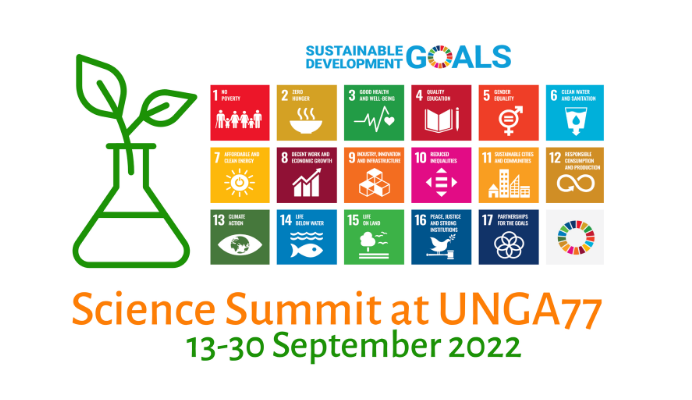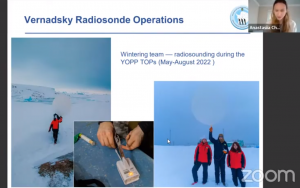Open Practices, Transparency and Integrity for Modern Academia (OPTIMA)
The main goal of the “Open Practices, Transparency and Integrity for Modern Academia” (OPTIMA) project is implementing Open Science practices in Ukraine to improve the quality of National higher education services.
OPTIMA’s priorities include engaging disadvantaged academic communities of displaced Ukrainian universities, focusing on climate change as well as inclusivity by means of modern information technologies.
The project includes 3 specific objectives:
- Introducing a new quality assurance mechanism – online open peer review platform for transparent research results evaluation at academic conferences in Ukrainian HEIs.
- Foster EU-Ukrainian cooperation and internationalization of Ukrainian HEIs by building an international online virtual community of peer reviewers and researchers within the online peer review platform.
- Raising awareness on academic integrity and Open Science, improvement of open practices and Open Science skills at Ukrainian HEIs and society at large through implementation of new subjects on open practices within modernised academic courses and open online course.
NASC will be responsible for bringing the top-level climate change expertise to the project. Part of new academic subjects to be developed within the project frame as well as the online course on OS will be enriched by examples on climate change and its mitigation. This will help rising awareness on this painful topic in Ukraine. NASC will also help with the project results dissemination and activities promotion.
The OPTIMA consortium includes Lviv Polytechnic National University (Coordinator), Vasyl Stus Donetsk National University, Sumy State University, Lutsk National Technical University, National Antarctic Scientific Center and the National Agency for Higher Education Quality Assurance.
International partners: Graz University of Technology (Austria), Wrocław University of Science and Technology (Poland), University of Côte d’Azur (France), the European Council of Doctoral Candidates and Junior Researchers (Eurodoc, Belgium), Stichting eIFL.net (Netherlands). Associated partners: Council of Rectors of Displaced Universities, Centre for Innovation and Sustainability for International Development and Antiplagiat Ltd.
Start: 15-01-2021 – End: 14-01-2024
Project Reference: 618940-EPP-1-2020-1-UA-EPPKA2-CBHE-JP
EU Grant: 938664 EUR
Programme: Erasmus+
Key Action: Cooperation for innovation and the exchange of good practices
Action Type: Capacity Building in higher education
Prof. Pavlo Zhezhnych, Sc.D., OPTIMA Project Coordinator
Dr. Oleksandr Berezko, Ph.D., OPTIMA Project Manager
E-mail oleksandr.l.berezko@lpnu.ua
Facebook @OPTIMAOpen
Twitter @optima_open
YouTube Project OPTIMA
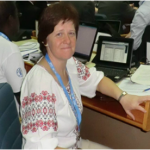 Svitlana Krakovska
Svitlana Krakovska
Position in NASC: Senior researcher, meteorology.
Email: SvitlanaKrakovska@gmail.com
Role in OPTIMA: Coordinator of project in NASC, member of Steering Committee, meteorology expert, management
Additional information: Ph.D.in Geophysics, Head of Applied Climatology Lab in UHMI, Leading author, review-editor and delegate of Ukraine to IPCC
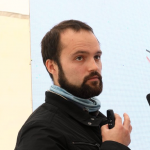 Anatolii Chernov
Anatolii Chernov
Position in NASC: Junior researcher, geophysics, ECS
Email: AchernovP@gmail.com
Role in OPTIMA: Preparation of the scientific materials, management of the communication between LNU, Ukrainian partners and NASC
Additional information: Ph.D. in Earth Sciences, participant of Antarctic Expeditions
 Oksana Pnovska
Oksana Pnovska
Position in NASC: Head of scientific management department
Email: OksanaPnyovska@ukr.net
Role in OPTIMA: Implementation of OPTIMA Open Peer review practices in scientifical and educational activities of NASC, financial management
Additional information: Ph.D. in Agro Science, Journal manager of the Ukrainian Antarctic Journal
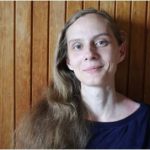 Mariia Chernyshenko
Mariia Chernyshenko
Position in NASC: Junior researcher in department of scientific management
Email: Chernyshenko123@gmail.com
Role in OPTIMA: Dissemination of OPTIMA information and Open Science standards in NASC and in NASC network, preparation of financial and other reports
Additional information: Has finished Ph.D study in Botany
2021
- Requirements to the Open Peer Review Platform
Reichmann et al. OPTIMA D1.3 Requirements to the OPR Platform - Requirements to Updated Courses with New Subjects on Open Science
Reichmann et al. OPTIMA D1.4 Requirements to Updated Courses - Open Lecture “Climate Change and Open Science”
- The presentation of Dr. Svitlana Krakovska, researcher at NASC, during the Kick-off Meeting of OPTIMA Project
- Dr. Krakovska’s Open lecture Open Science and Confronting Climate Change (in Ukrainian). The first Ukrainian-language webinar within the OPTIMA project. The lecture is dedicated to implementing principles of open science to achieve Goal 13 (Combat climate change) of the list formulated on the UN summit of 2015 to end poverty, protect the planet and ensure prosperity for all till 2030.
- OPTIMA webinar Open Science for Climate Protection (in Ukrainian). The event was held in the framework of #ErasmusDays 2021, and Dr. Krakovska’s report was dedicated to the role of open science in counteracting climate change (in particular, in the writing of the IPCC reports). Her presentation starts at 26.00.
2022
- Session REF 30561 of the Science Summit at the UN General Assembly (UNGA77), moderated by Dr. Svitlana Krakovska. The session was dedicated to the recovery of Ukrainian science and innovation after the Fossil Fuel War ends. The summit as a whole encompassed the development and implementation of scientific cooperation to demonstrate global scientific mechanisms and measures pursuing Sustainable Development Goals, Agenda 2030 and Local 2030.

Description of the event on the web-page of the National Research Foundation of Ukraine. The discussion underscores the necessity to comprehensively counteract the russian federation’s aggression for the development of science and novel technologies necessary to rebuild Ukraine and in the global context. Video recording of the session (English subtitles available). The problem of recoverying the Ukrainian scientific potential and its integration into the worldwide research is considered from different angles, by scientists in Ukraine and abroad.
- Online webinar Ukraine’s Climate Science and Innovation Before and After the Fossil Fuel War. The event was held in a hybrid format and moderated by Dr. Krakovska within the framework of UN Climate Summit COP27-2022 in Sharm El-Sheikh. The discussion was part of the International Day on Science and Youth on the 10th of November in Ukrainian Pavillion. The topics included the common roots of climate change and russia’s attack of Ukraine, the war’s effect on the implementation of the already developed measures to protect the climate, possibilities for climate research and education for Ukrainians and included presentation of Open Science principles and OPTIMA project by Dr.Krakovska.
- Online session International Climatic Studies at Vernadsky Station, moderated by Dr. Krakovska. The session was quite multifaceted; the presentations were dedicated to the effect of climate change on antarctic flora and fauna, the ozone hole’s impact on the planet, the Ukrainian ice-class research vessel, the Special Winter Observation Period within the YOPP-SH 2022, using isotopes to study precipitation, future polar climate, NASC research as part of PolarRES and GEOSPACE projects, thunder, lightning, a description of the OPTIMA project for prospective participants, and penguins.
2023
- Dr. Krakovska’s lecture “Climate crisis in the modern world” (part 1)
- Dr. Krakovska’s lecture “Climate crisis in the modern world” (part 2)
- Dr. Krakovska’s lecture “Climate crisis in the modern world” (part 3)
Training Workshop on Best Practices on Open Science and Open Educational Resources (Nice, France). From June 12 to 16, 2023, a training workshop on Best Practices on Open Science and Open Educational Resources was held on the basis of Université Côte d’Azur in the city of Nice (France). The main task of the event was to deepen the team’s knowledge of various aspects of open science and to prepare for the creation of an open educational resource within the project. Svitlana Krakovska (Optima project manager) and Oksana Pnyovska participated in the workshop from the National Antarctic Scientific Center.
The trainings, presentations and follow-up discussions organized by Nicki Lisa Cole and Eva Kormann from the Technical University of Graz were extremely relevant; Sebastian Dahle and Agnieszka Żyra – representatives of the European Council of Graduates and Young Scientists (Eurodoc); Wojciech Wodo from Wrocław Polytechnic. The event also included a meeting with Thomas Guillemaud, one of the founders of the French community of scientific reviewers PCI (Peer Community In), who has already repeatedly held lectures and trainings for the project team online.
The highlight of the workshop was a visit to the University’s Center for Pedagogical Support (Centre D’accompagnement Pédagogique – CAP), whose multidisciplinary team provides support to teachers through training, coaching and the implementation of innovative means of creating educational materials. The center’s team, led by Nataliia Timus, conducted training sessions on the creation of open multimedia educational resources for the OPTIMA team, during which the Ukrainian participants of the event recorded audio podcasts and videos. The acquired knowledge and experience are necessary for project team members to prepare planned video materials for an open educational resource on open science.
The workshop gave its participants the opportunity to significantly expand their professional network and discuss new cooperation projects with existing and new international partners.
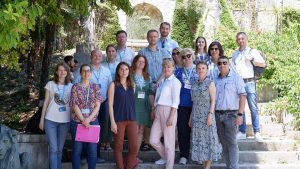
Participants of the workshop on Best Practices on Open Science and Open Educational Resources
Training Workshop on Best Practices on Open Science and Open Educational Resources (Graz, Austria). Dr. Svitlana Krakovska team leader and coordinator for OPTIMA at National Antarctic Scientific Center visited training workshop on best practices on Open Science and Open Educational Resources within the frames of the Erasmus+ OPTIMA project (Open Practices, Transparency and Integrity) during 15th-21th of October 2023 in Graz University of Technology (Graz, Austria). This project aims to introduce more open and transparent practices to increase academic integrity leading to improved education quality in Ukrainian universities.
Representatives from relocated universities of Ukraine and representatives of international partners of the project attended the training at the University of Graz: Technical University of Graz (Austria), Wrocław Polytechnic (Poland), University of the Cote d’Azur (France), NGO “Eurodoc” (Belgium), NGO ” Stichting eIFL.net” (Netherlands)
During the training, the main speakers were: Sara Voivod with the OPENness initiative at TU Graz, Martin Ebner with iMOOX presentation/seminar, Agata Bochynska with an online report on the creation of a new reproducibility network, Serge Horbach with an online report on Open Peer Review platform.
A workshop on the Open Online Course was also held. During the workshop, short promotional videos were filmed in the Graz University of Technology studio, the purpose of which is to draw the attention of the audience to the course from various fields of knowledge: information technology, chemical engineering, mechanical engineering, solving climate change and other environmental problems, ensuring the quality of education, socio-economic research.
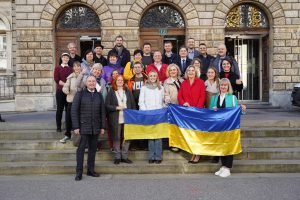
Participants of the workshop near main building of Graz University of Technology
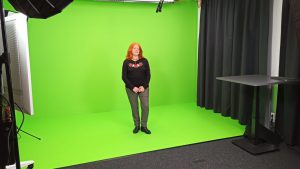
Svitlana Krakovska in the studio of the iMOOX
- On May 25, 2023, the OPTIMA team and the National Antarctic Scientific Center organised a direct transmission from the Ukrainian Antarctic Akademik Vernadsky Station, contacting Ukrainian polar researchers.
Before the transmission, several meetings were held in the high schools of Vinnytska, Volhynska, Lvivska, and Sumska oblasts. Representatives of the higher education institutions spoke with the schoolchildren about academic integrity and open science.
At 2 p.m., the Ukrainian Antarctic team went online. The scientists described their work on the station and the importance of open science in their work. They took the audience on a virtual trip around the station and showed the research equipment. The event could be joined by anybody (for example, through the Facebook page), and questions could be asked in the comments.
2024
- Ukrainian Open Science Forum, UOSF2024.
Ukrainian Open Science Forum and the launching of the Ukrainian Reproducibility Network (Lviv, Ukraine)
On November 21-23, 2024 in Lviv, the Lviv Polytechnic National University hosted the Ukrainian Open Science Forum (UOSF2024). It was the final conference of the Erasmus + CBHE OPTIMA project (Open Practices, Transparency and Integrity). The National Antarctic Scientific Center was represented by Svitlana Krakovska, team leader and NASC coordinator of OPTIMA, and Mariia Chernyshenko, participant.
The forum attendees included representatives of the Ministry of Education and Science of Ukraine, National Agency for Higher Education Quality Assurance, many Ukrainian universities developing the open science practices as part of their curricula, international partners (European Council of Doctoral Candidates and Junior Researchers, British Reproducibility Network, TU Graz, Université Côte d’Azur) and the management of Lvivska oblast. It was held together with the XI International Youth Scientific Forum Litteris et Artibus.
Plenary talks and presentations of Lidia Borrell-Damián (Science Europe), Tony Ross-Hellauer and Eva Kormann (TU Graz), Pil Maria Saugmann (Eurodoc), Brian A. Nosek (Centre for Open Science, USA), Svitlana Krakovska (NASC, Ukraine), Sebastian Dahle (Eurodoc), Marcus Munafò (UKRN), Giulia Malaguarnera (OpenAIRE) and Natalia Timus (Université Côte d’Azur) were dedicated to the practice of introducing the principles of open science in the education and research communities, novel models of scientific knowledge circulation and the future of open reviews.
There was also held the first meeting to launch the Ukrainian Reproducibility Network. On December 4, 2024, a direct transmission was organised from the Akademik Vernadsky Station in Antarctica.
The team of the international project OPTIMA and the National Antarctic Scientific Center prepared a direct transmission from the Akademik Vernadsky Station in Antarctica. The online meeting offered a unique opportunity for schoolchildren and everybody who wanted to take part in it to communicate with the Ukrainian polar scientists who conducted exciting experiments in the extreme conditions of the frozen continent. Everybody could view the transmission, particularly on the event’s Facebook page, and ask questions in the comments.
Geophysicists Oleksandr Bogomaz and Anna Soina, participants of the 29th Ukrainian Antarctic Expedition, shared their impressions and talked about their research. In particular, the scientists spoke about employing the principles of open science and showed the inhabitants of the harsh polar environment. In the end, the viewers could ask them questions.Why is it important?
Today, Ukraine’s success directly depends on every Ukrainian citizen’s success. Meanwhile, our common progress is built on trust and the wide implementation of technologies and innovations in all fields of economic and social life. The trust has to grow at the personal level (between colleagues, partners, teachers, and mentors) and on the level of institutions (trust to the state agencies, executive organs, education facilities, etc.). The path to it lies through openness and integrity.
The technological economy requires highly qualified specialists. Academia is the environment that unites honesty, openness, and professional qualification. A robust education and science system is the basis for the development of the technological economy and the success of Ukraine.
Academic integrity is a kind of agreement between all participants in the academic environment. It is based on the key values of honesty, trust, fairness, respect, responsibility, and courage. Upholding these principles provides the quality of educational outcomes and scientific research.
Open science is about transparency and accessibility of knowledge spread and developed using current information and communication technologies.
The meeting was a wonderful opportunity for the youth to join the important dialogue about the future of science, education, and society in Ukraine!
For more information about objectives you can visit OPTIMA website.





